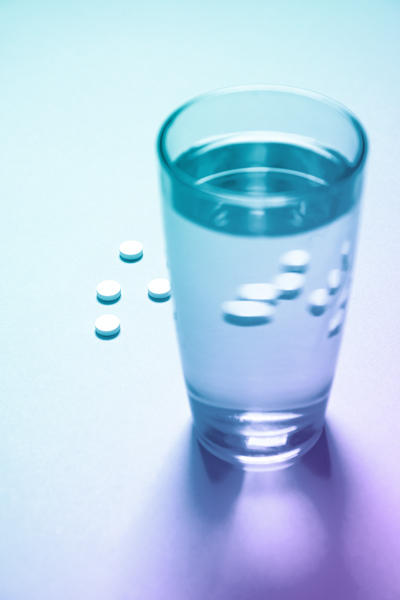How Can You Manage Pain After Recovering From Addiction?
If you’ve struggled with substance use disorder, you’re not alone. The National Survey on Drug Use and Health found that in 2017, 38% of American adults experienced drug use disorder to some extent. In total, 19.7 million Americans older than 12 suffered from substance use disorder that year.
The path to recovery involves medical treatment and therapy, and it takes a long time to overcome this disorder. If you’ve just finished rehabilitation, you may worry about developing a chronic pain condition or going through surgery without pain medication. However, patients recovering from substance abuse disorder still have access to pain management. Here’s what you need to know about controlling your pain safely.

Taking Opioids
Opioids are addictive, and they present a particular challenge for people who already struggle with addiction. Still, it’s hard to manage the pain from surgery without them. If you have surgery coming up, request a pain management physician who can help monitor your opioid consumption at the hospital. Enlist a friend or family member to handle your prescription medication once you get home.
Around 25% of adults who treat their chronic pain with opioids end up using them in a way that is unhealthy, and for around 10% of them, this misuse leads to substance abuse disorder. When taking opioids after recovery, take the minimum dose every time. As soon as you can manage your pain on your own, stop taking your prescription opioids. To keep your substance use disorder from returning, contact your hospital about how to safely dispose of or return your opioids.
Taking Non-Opioid Drugs
Sometimes, taking opioids after surgery is too reminiscent of relapses to be an option. Also, for other pain sources, it’s not always a healthy option. For example, if you’re one of the 50 million Americans who lives with chronic pain, ingesting opioids every day to stay comfortable can trigger a relapse.
For chronic, post-surgery, and acute pain, non-opioid drugs can take away your symptoms without triggering substance use disorder. Acetaminophen, beta-blockers, antidepressants, and ibuprofen are all non-addictive drugs that help suppress your pain. Before taking any of these drugs, talk to your doctor to make sure that they won’t affect your progress.
Using Herbal Medications
While you should never use them in conjunction with opioids or other painkillers, herbal medicines can be effective for dealing with low-level chronic or post-surgery pain. Willow bark contains the same pain-killing chemicals as aspirin, and you can take it as a tea or pill. If your pain is topical, you can rub clove oil onto the affected area for relief. Before using either of these supplements, talk to your doctor about their potential side effects.
Choosing Other Management Strategies
If you don’t want to ingest anything to manage your pain after an injury or chronic pain, using a heating pad or a hot water bottle can soothe your muscles and bring relief. For low-level heat, keep the pad or bottle in place for up to an hour. With high-level heat, it’s best to take a break after 30 minutes so you don’t get burned or blistered. Heat therapy is particularly effective for menstrual cramps, symptoms of endometriosis, and chronic muscle pain.
If your pain comes with swelling, applying an ice pack or a bag of ice reduces your inflammation. To prevent frostbite, cover the ice in a towel or t-shirt, and only apply it for 30 minutes at a time. If your skin turns white or blue or becomes numb, call your doctor immediately. Otherwise, you can apply ice to the injured area up to four times a day.
Mild exercise such as walking, stretching, or doing yoga helps to produce endorphins, which are your body’s built-in pain-fighting hormones. It also takes your mind off the pain and encourages you to go outside, allowing you to naturally absorb vitamin D from the sun. If you’re in good shape, getting your heart pumping through running, lifting weights, and biking creates even more endorphins. Before starting an intense exercise regimen, have your doctor perform a physical to ensure that your heart and lungs can handle it.
Going to cognitive-behavioral therapy can also help you manage chronic pain without ingesting any drugs. During these sessions, your therapist gives you tools for relaxing your body and mind and coping mechanisms for intense pain. Depending on your stage in the recovery process, group therapy may be a good way to support your one-on-one sessions and build a community of people with similar struggles.
Pairing CBT with physical therapy that strengthens and stretches your muscles is often an effective pain management regimen for chronic and post-surgery pain. If you have back pain, mobility issues after surgery, or joint problems, PT is a great way to take charge of your pain. Usually, your first PT appointment involves assessing what’s causing you pain right now and what exercises will be most effective for addressing it. Most patients do not need more than 12 appointments, and your therapist will work with you to create a program to continue your progress at home.
Asking for Help
Before starting a new type of pain management, ask for help from your therapist and doctors. Explain the symptoms you’re experiencing, and ask for their support as you try to manage your pain without relapsing into substance use disorder. These professionals can recommend support groups and alternative medicine brands as you get started.
As you try new ways to manage your pain, monitor yourself for symptoms of substance use disorder. If you look forward to taking your painkillers or if you feel as if you can’t make it through the day without them, reach out to your doctor immediately. Look out for withdrawal symptoms if you take a break from your painkillers:
- Flu-like symptoms
- Nausea
- Anxiety
- Headaches
- Insomnia
These symptoms are signs that you’re becoming reliant on your painkillers and that you need a new plan for managing your pain.
Making a Plan
Making a plan is your long-term key to staying on track with your recovery. If you’re about to have surgery, let your doctor know that you’re recovering from substance use disorder, and discuss how much pain you’re going to feel after the surgery. Then, make a plan for managing each level of pain. For example, if you have mild aches, perhaps you’ll apply a heating pad, and if the pain is so intense that you’re having trouble thinking, you might try a dose of your over-the-counter medication.
You should also have a plan for managing chronic pain. Make a list of all your different pain management strategies, and note how often you can use them per day or week. Schedule your CBT or physical therapy sessions wisely so that they occur when you’re likely to need help but not be in so much pain that you can’t go anywhere.
As you’re making your pain management plan, be honest about your fears and triggers. If you don’t think you’ll be able to control your pain through exercise and herbal teas, ask your therapist and family to help make a supportive environment for drug-based management.
What About Sobriety?
Taking medication prescribed by a doctor in the manner that you are instructed has no effect on your sobriety. Because you are taking these drugs to manage your pain and not as a symptom of substance use disorder, you are in control of the situation. Don’t restart your sobriety counter or think that you’re a failure for needing help managing your pain.
If you need support as you manage your pain while staying sober, Clean Recovery Centers has your back. With residential and outpatient programs, we’re dedicated to helping you get the pain relief you need without a relapse. Call us at 813-548-5154 or fill out our online form to learn about our services and schedule an appointment.
Sources:
- https://americanaddictioncenters.org/rehab-guide/addiction-statistics
- https://www.healthline.com/health-news/chronic-pain-the-impact-on-the-50-million-americans-who-have-it#:~:text=Chronic%20pain%20is%20certainly%20a,some%20form%20of%20chronic%20pain
- https://www.healthline.com/health-news/chronic-pain-the-impact-on-the-50-million-americans-who-have-it#:~:text=Chronic%20pain%20is%20certainly%20a,some%20form%20of%20chronic%20pain
- https://www.apa.org/ptsd-guideline/patients-and-families/cognitive-behavioral
- https://www.drugabuse.gov/drug-topics/opioids/opioid-overdose-crisis
- https://www.healthline.com/health/pain-relief/surprising-natural-pain-killers#be-careful
- https://www.health.harvard.edu/staying-healthy/exercising-to-relax
- https://www.mayoclinic.org/diseases-conditions/drug-addiction/symptoms-causes/syc-20365112
- https://www.healthline.com/health/coping-opiate-withdrawal#symptoms-andtimeline
- https://www.healthline.com/health/heating-pad-for-back-pain#how-to-use
- https://www.webmd.com/fitness-exercise/features/physical-therapy-for-active-adults#1


